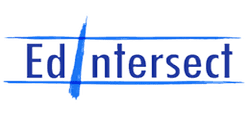
THEMATIC AREAS
Learn about our thematic areas of work and how we can help you achieve your goals
Capacity Development
EdIntersect is committed to working on capacity development across the spectrum of their programs. EdIntersect brings a blend of academic and practitioner knowledge in building capacity in partnership with ministry colleagues and other stakeholders. Capacity development is the process through which people and the organizations in which they work strengthen capabilities to determine and achieve their objectives over time.
Early Childhood Development
EdIntersect brings a depth of experience across various contexts in early childhood development programming and research. The period of life from birth to age 8 is generally defined as early childhood. The emotional, social, and physical development of children during this period has a direct effect on who they become as an adult.
Early Grade Mathematics
EdIntersect brings subject matter expertise and research experience for early grade mathematics programs in diverse contexts. As with reading, a strong foundation in mathematics during the early grades is the key to future success in school. In addition to school success, mathematics builds reasoning skills, which are critical to everyday activities throughout life, such as personal commerce and financial interactions of all types. As the Early Grade Mathematics Assessment (EGMA) Toolkit points out, there are also analyses that suggest that early mathematics skills predict later reading skills just as much as early reading skills.
Early Grade Reading and Literacy
EdIntersect brings subject matter expertise and research experience for early grade reading programs and literacy interventions in multilingual contexts. EdIntersect President Dr. MaryFaith Mount-Cors bridges the vision of literacy as a technical intervention that emphasizes instructional strategies, professional development, and testing with sociocultural literacy frameworks that deal with the social dimensions of literacy in her book Global Literacy in Local Learning Contexts: Connecting Home and School.
ICT/Technology for Development
EdIntersect brings a depth of experience across various contexts in developing information and communications technology (ICT) solutions for education programs. In addition to ICT-enabled data collection, EdIntersect supports the technical components of cost-effective use of ICTs in education programming.
Social-Emotional Learning
Social and emotional learning (SEL) or soft skills describes skills that may not often be explicitly taught, but are an integral part of human development and of the educational process for anyone. How to teach these competencies and then also how to assess these competencies are questions that are being posed more frequently across many country contexts.
Youth Development
Youth development and literacy formation demand innovations in technology and elearning. EdIntersect is committed to working across the spectrum of child development needs, with specific efforts in helping development partners define and deploy adolescent and youth theories of change, program models, and critical research.
